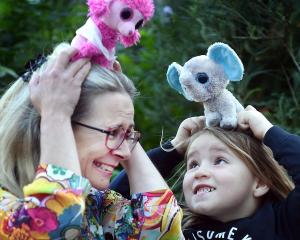Four Dunedin schools have thrown away the rule book and given their pupils more freedom on the playing field, leading to more skinned knees but more active and focused pupils.
Green Island School and Silverstream School, in Mosgiel, were two of the schools to take part in a University of Otago study into how relaxing playground rules would affect physical activity.
The two-year, multidisciplinary ''Play Study'' finished last year but both schools have kept the hands-off approach and allow pupils more freedom during lunch and breaks.
Silverstream School principal Elizabeth Cleverly said the study had shifted the way her school thought about play. Instead of complex playground equipment, pupils now climbed trees or made their own fun with objects like concrete tunnels and old tyres. Pupils were more active than before, she said.
There were possibly more skinned knees now and junior pupils were coming in from breaks with mud on their uniform but that was part of learning, Miss Cleverly said.
Green Island School principal Steve Hayward said one of the most popular changes the school made was to allow pupils outside when it rained. The school bought 50 pairs of gumboots and 50 raincoats and pupils were encouraged to bring wet-weather gear from home.
''When it rains, these kids can still get outside and jump in puddles and splash each other and burn off all that excess energy,'' Mr Hayward said.
Pupils were allowed to climb trees up to a certain height, which had led them to create a game where they tried to climb from tree to tree without touching the ground, he said.
The results of the Play Study have not yet been published but both principals said while it was hard to say for certain if more activity in the playground led to more attention in the classroom, so far it seemed to have worked.
Kylie Marriner, a Dunedin mother of a 6-year-old, said it was ''built-in'' for a mother to want to protect her child but she had to let her son explore.
''Half the time I just have to look away because I would wrap him up in cotton wool otherwise. You can't be sitting there growling at them all the time.''
Dunedin mother Stephanie Blair said her children generally knew what they could and could not do and it would be good if rules were more relaxed at schools.
Play Study co-ordinator Victoria Farmer, a senior research technician at the University of Otago, said researchers had been surprised by the enthusiasm for the project.
''It just shows what people have been saying for a long time about being too careful with children and the benefits of letting them go off and learn for themselves.''
The two other schools that took part declined to comment, citing privacy concerns.
- by Tim Miller













